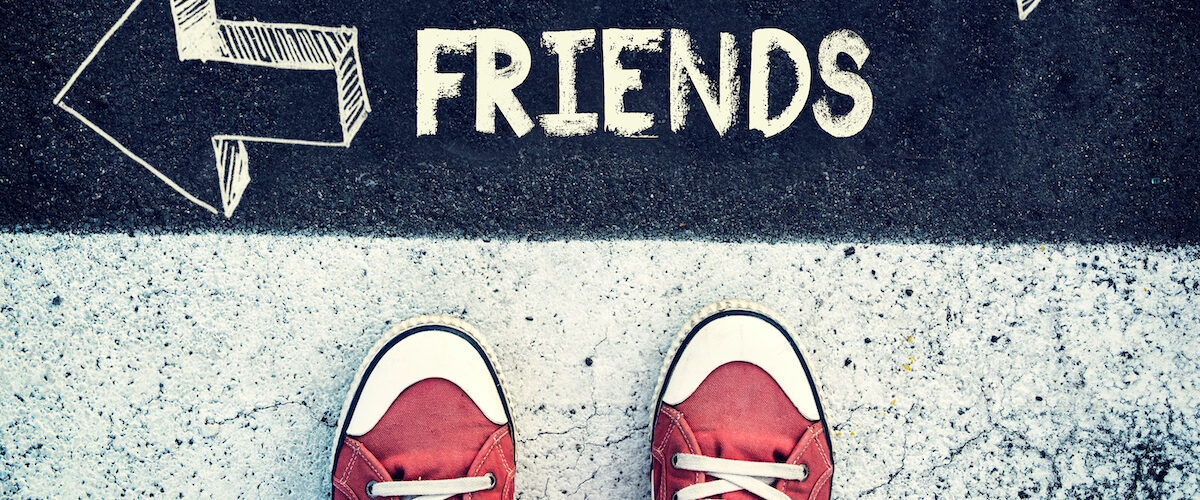The post-break-up admin can be as heartbreaking as it is onerous and time-consuming
Divvying up property and assets, embittered arguments about everything from pets to record collections. Trying to work out custody of kids or pets, like civilised adults – it is seldom fun. But an often-overlooked yet equally distressing aspect of the break-up is who gets custody of the friends.
Of course, there are couples who manage to unhitch themselves with admirable amicability. They can often be heard cheerfully saying, “We’re still best friends!” – and actually meaning it. Awkwardness is avoided as they keep their shared social circles intact, setting an example of adulting to us all as they demonstrate that it is possible to attend a party at the same time without making an embarrassing scene at the punchbowl.
But for plenty of others, losing a cherished, established social circle can be one of the most painful aspects of splitting up.
Dr Martha Tara Lee, relationship counsellor and founder of Eros Coaching, advises separating couples to “encourage open dialogue, promote open communication between both partners and their friends, encourage friends to maintain individual relationships with both parties involved.”
A tale of two friend groups
However, this can be more easily said than done. Jacob Myers is in the process of divorcing his wife of 18 years, “after a rough patch with Covid and numerous other things” that caused them to grow apart . Their son is about to start secondary school. While nobody else is involved, there have been no big rows and relations are very amicable, “that’s not the way things have been viewed elsewhere” in their friendship circle.
“You can usually split your friendship group into those that you had before your marriage and those you’ve had since you’ve been married – those in the former group mainly tend to side with their original friend, which is understandable, and while there’s a little crossover, by and large, those crossover friends aren’t ones that you’re going to turn to in a time of need, as information might get back to the other party,” Jacob explains.
I would say that every one in that post-marriage group has stayed in touch with my wife and had little to no contact with me
He says that he has been left with his childhood friends: “They stick by you, which is great, but they may no longer live nearby, which is tough as a support network – particularly for us men.”
“Given that we’ve been married 18 years, obviously the latter, post-marriage group, is larger,” he continues. “Aside from maybe two couples, I would say that every one in that post-marriage group has stayed in touch with my wife and had little to no contact with me – even if I have reached out to them for a beer or curry, they’ve been busy, but certainly any party invites, impromptu drinks, meeting for a coffee and the like have all largely gone to my wife – I think I have had one offer of dad drinks in seven months which unfortunately I couldn’t make.”
Specialised support
“I think there’s an assumption that a single man is out partying the night away every weekend when that simply isn’t the case – and paying rent plus half a mortgage means I couldn’t afford that anyway!” Jacob says.
Dr Lee says that as well as seeking out new social opportunities to meet new people and form new friendships – “join clubs, classes or community groups that align with personal interests, take up a new hobby, volunteer, join a professional organisation” – professional therapy or support groups should be considered.
“Professional guidance or joining support groups specifically designed for individuals going through break-ups can offer a safe space to share experiences and receive emotional support,” Dr Lee advises.
Caught in the fallout
Marnie Brucker is one of the mutual friends currently in a difficult position with a couple she knows going through a “horrific” break-up: “It is still playing out and they are likely to end up with no friends left for anyone.”
“It is hard being called as a witness in drunken rows or forced to declare and pick sides – it is heartbreaking and there is a lot of alcohol involved,” Marnie says. “They’re not living together anymore and it has almost reached the bitter end – I’m just worried they’re both going to end up lonelier than either of them expected, it’s very much a casualty of lockdown, sadly.”
expressing how their behaviour is affecting you and establishing boundaries for respectful interaction
In extreme examples, such as Marnie’s warring friends, everyone affected – whether they are part of the separating couple or a friend in a difficult position – should take steps to protect themselves, such as focusing on self-care, surrounding themselves with supportive friends and family members, and setting clear boundaries, according to Dr Lee.
“Communicate assertively with the person involved, expressing how their behaviour is affecting you and establishing boundaries for respectful interaction,” she says. “If necessary, limit contact or distance yourself from toxic individuals.”
Overcoming the awkwardness
In situations where it is more awkward rather than toxic, Dr Lee says that while it is healthy to maintain mutual friends, creating separate friendship circles allows for individual support systems. One-on-one catch-ups with mutual friends help maintain personal connections and avoid any potentially uncomfortable situations, as well as encouraging mutual friends to “maintain relationships with both partners and express the importance of their support during the transition”, she suggests.
creating a shared social calendar to plan events where both partners can attend without anyone feeling awkward
Practical steps, such as creating a shared social calendar to plan events where both partners can attend without anyone feeling awkward is a good way to ensure all mutual friends feel included and are not forced to take sides, can help smooth the process, along with introducing new friends to foster new connections and expand everyone’s social circle.
Emerging from a break-up as a stronger person is an important goal, with Dr Lee urging people to engage in self-reflection and personal growth: “Focus on personal development and building resilience - this can involve therapy, self-help resources or engaging in activities that promote emotional healing and growth.”
“Remember, it’s important to prioritise personal safety and well-being in all situations. Seeking professional help, such as therapy or legal advice, can provide additional guidance and support,” Dr Lee concludes.




Add comment